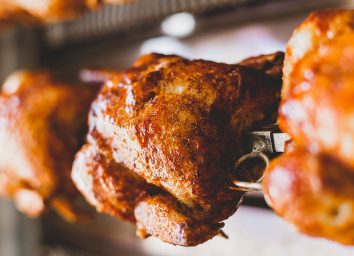Secret Side Effects of Eating Grilled Chicken, Says Science
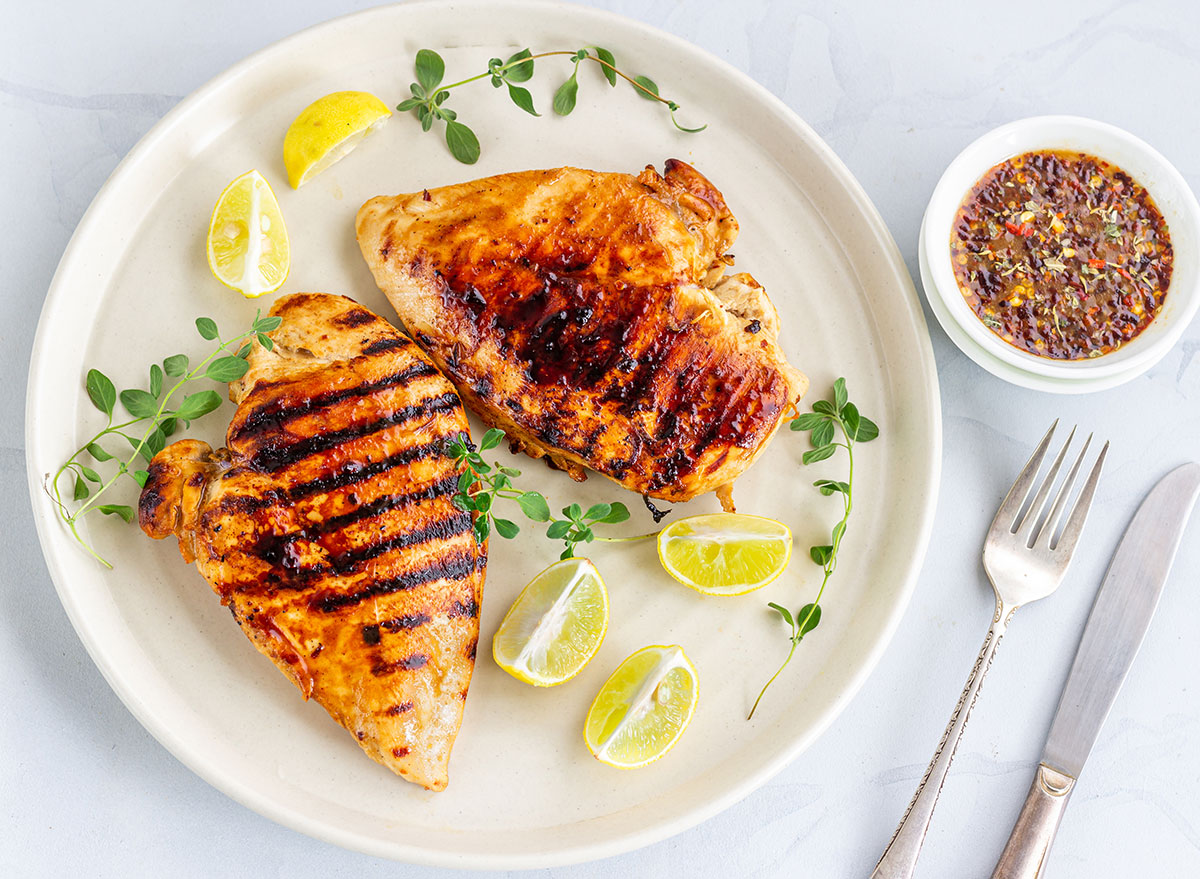
We are all familiar with chicken; the versatile poultry that may in fact be one of the most widely consumed animal meats. Many use chicken in their meal rotation because of its versatility, mild flavor, and ease of cooking, but what are some of the side effects of eating chicken, and, more specifically, grilled chicken?
While you may think the flavor is the only thing that changes when you grilled chicken versus baking or pan-frying, there are other changes that occur during the process of grilling that are worth noting. Let's take a deep dive into what happens in your body when you eat grilled chicken, and for more on how to eat healthy, don't miss 7 Healthiest Foods to Eat Right Now.
Grilled chicken may help with growth and development.
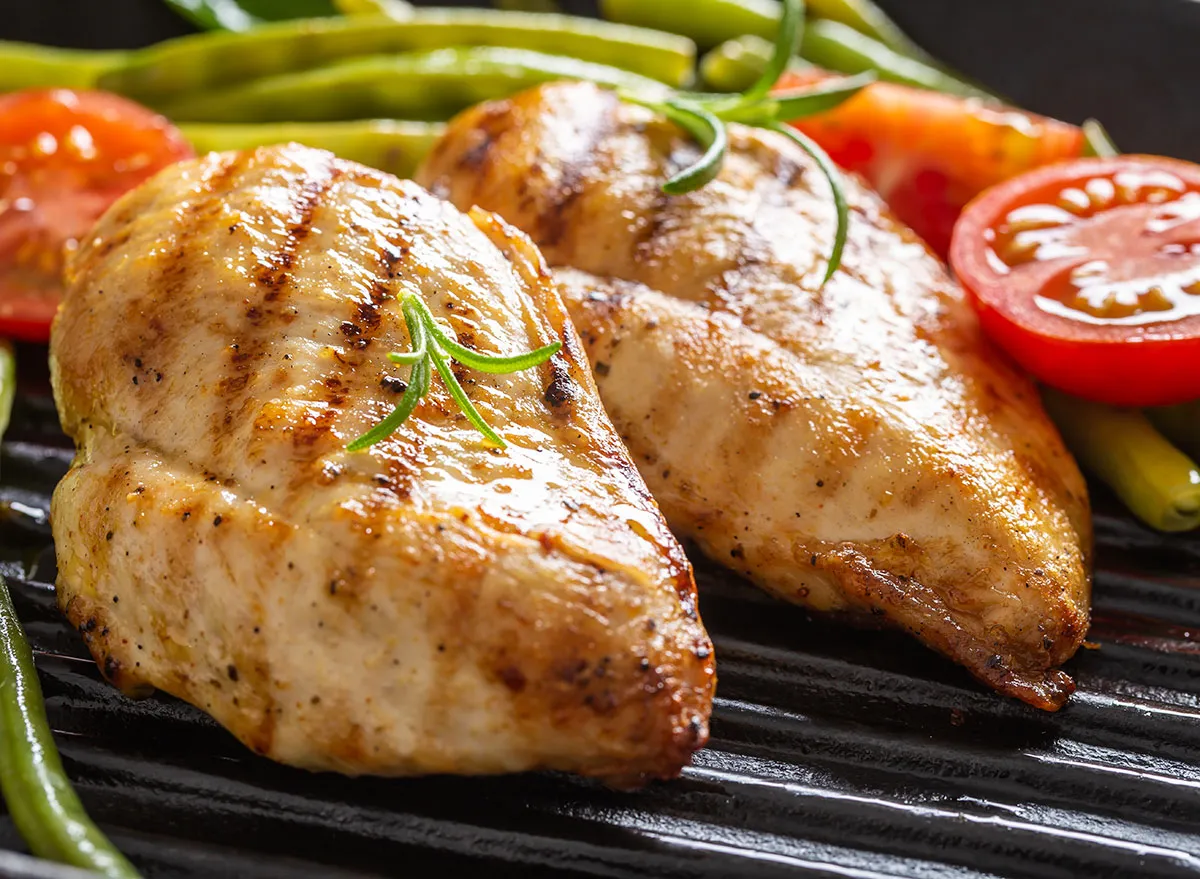
As with all animal meats, chicken is a great source of amino acids, the building blocks of protein. Thus, the protein in chicken aids in the repair, building, and maintenance of tissues within the body. When you consume grilled chicken, you are providing your body with numerous amino acids that contribute to the "pool" of these building blocks available for various functions throughout the body.
Having an ample supply of these amino acids is important for positive nitrogen balance, a concept described as having more amino acids available than are required in your body at any given time. Positive nitrogen balance is especially important for periods of growth, like when an individual looking to gain muscle weight. In these circumstances, one must have excess amounts of protein available in their body to put toward their growth and development.
It will help you feel satiated.
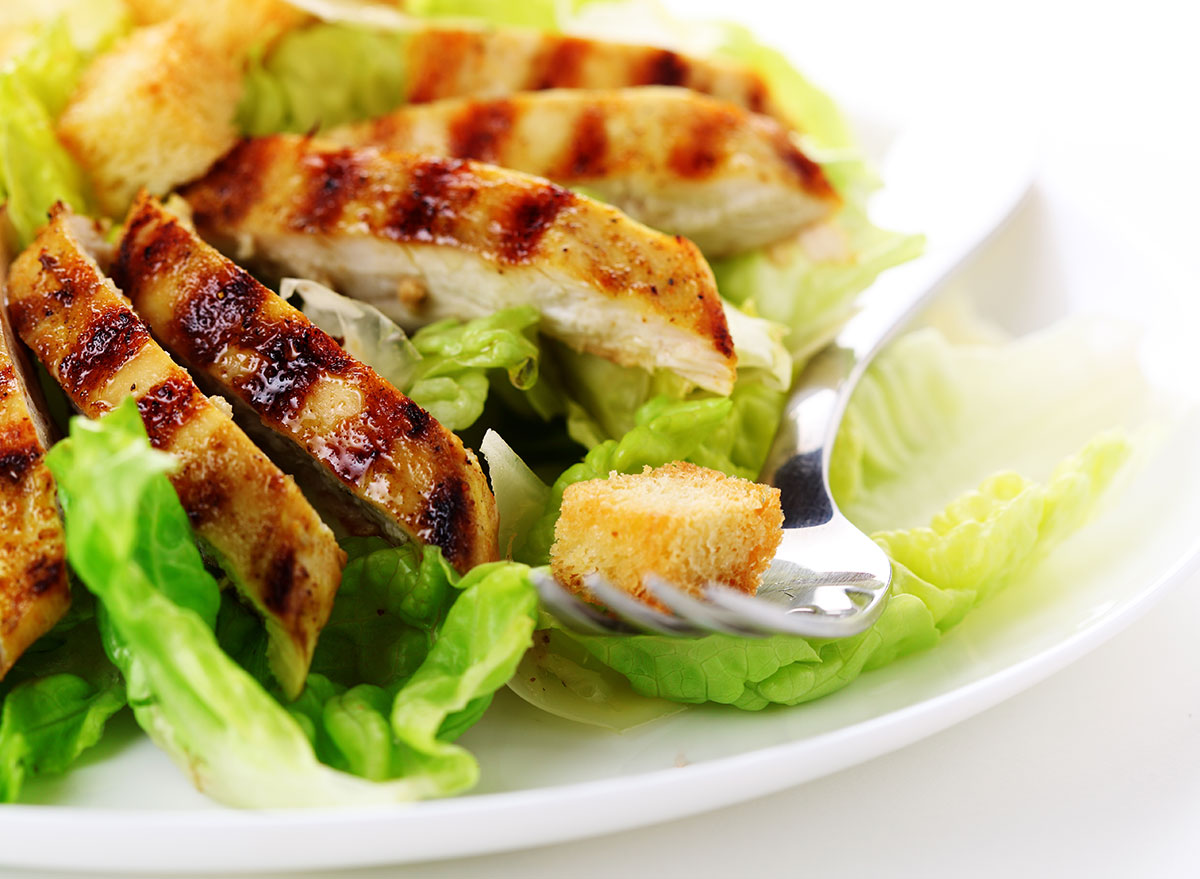
Satiety may not be a word you hear often, but the concept is something you encounter on a daily basis. Satiety is the feeling of fullness, or being satisfied after eating. Of all of the macronutrients, carb, fat, and protein, protein provides the highest satiety value. This means when you eat equal amounts of calories from cab, fat, and protein, you will feel the fullest, the longest after consuming the protein. This is a valuable trait as satiety can enable us to limit excessive snacking, and creates an appetite level that may make it easier for us to choose more appropriate portion sizes at meals and snacks.
Managing portion sizes and frequency of eating are helpful tools in weight loss and management. Because of this, eating grilled chicken may be a helpful dietary choice for someone who is looking to lose weight.
Grilled meat has carcinogens.
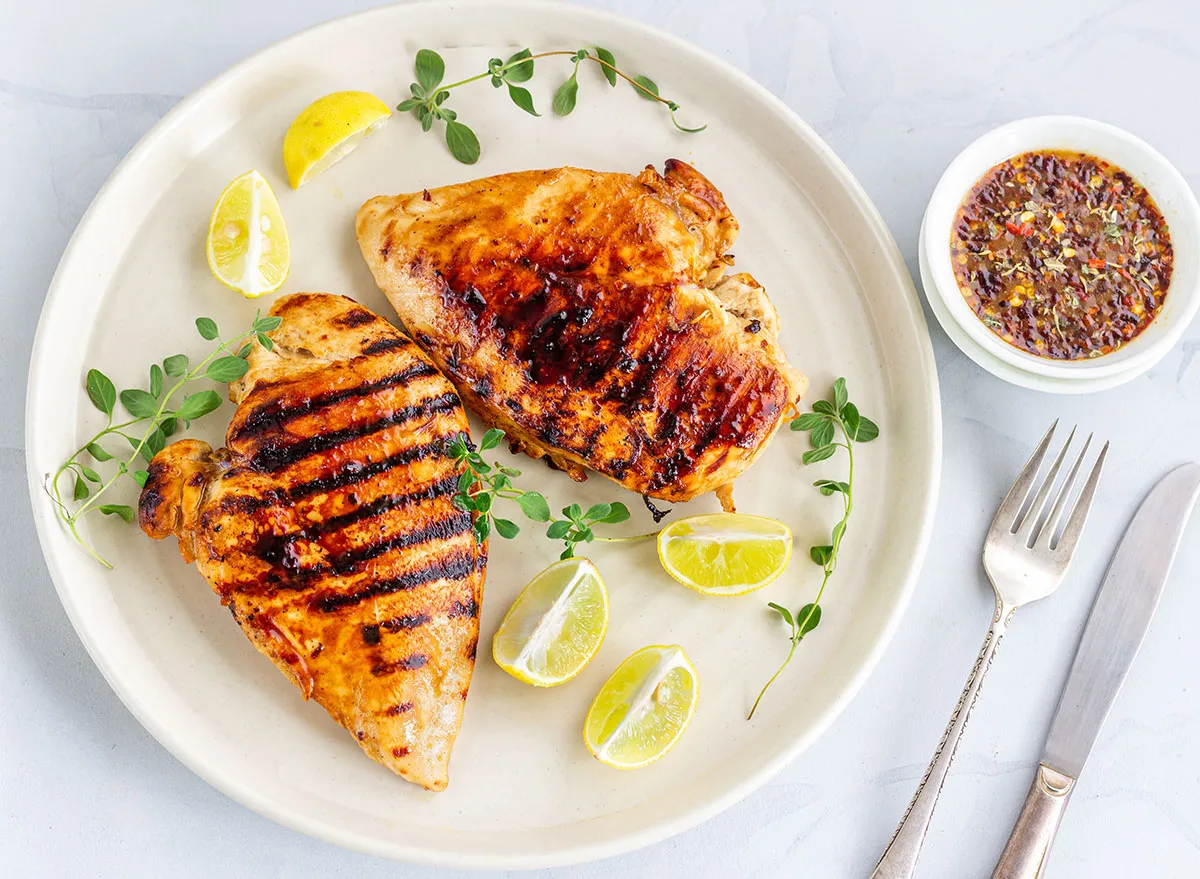
While grilling chicken does provide a unique and desirable flavor, there may be some downside to cooking your chicken (or any meat) over a direct flame. Cooking meat at very high temperatures, as is the case with grilling, produces compounds called heterocyclic amines (HCAs), which become especially present when char marks form on the meat. Unfortunately, these HCAs are thought to promote the development of cancerous cells.
In addition to HCAs being produced, when fat from meat drips into the flames of a grill, another potential cancer-causing compound called polyaromatic hydrocarbons (PAHs) are produced. Luckily, chicken is a lean meat and does not typically have much fat that could potentially drip into flames while being grilled. However, no matter the fat content, the open flame will likely produce HCAs within the meat.
To reduce the development of these worrisome compounds, you can wrap your chicken in foil when you grill it to lessen the impact of the flames. This would also contain any fat that releases from the chicken to keep it from coming in contact with the flames. Another tip for minimizing cancer-causing compounds while grilling your chicken is to flip it frequently. This will limit the development of char marks, and, in turn, lessen the number of HCAs that are produced during cooking.
Takeaway
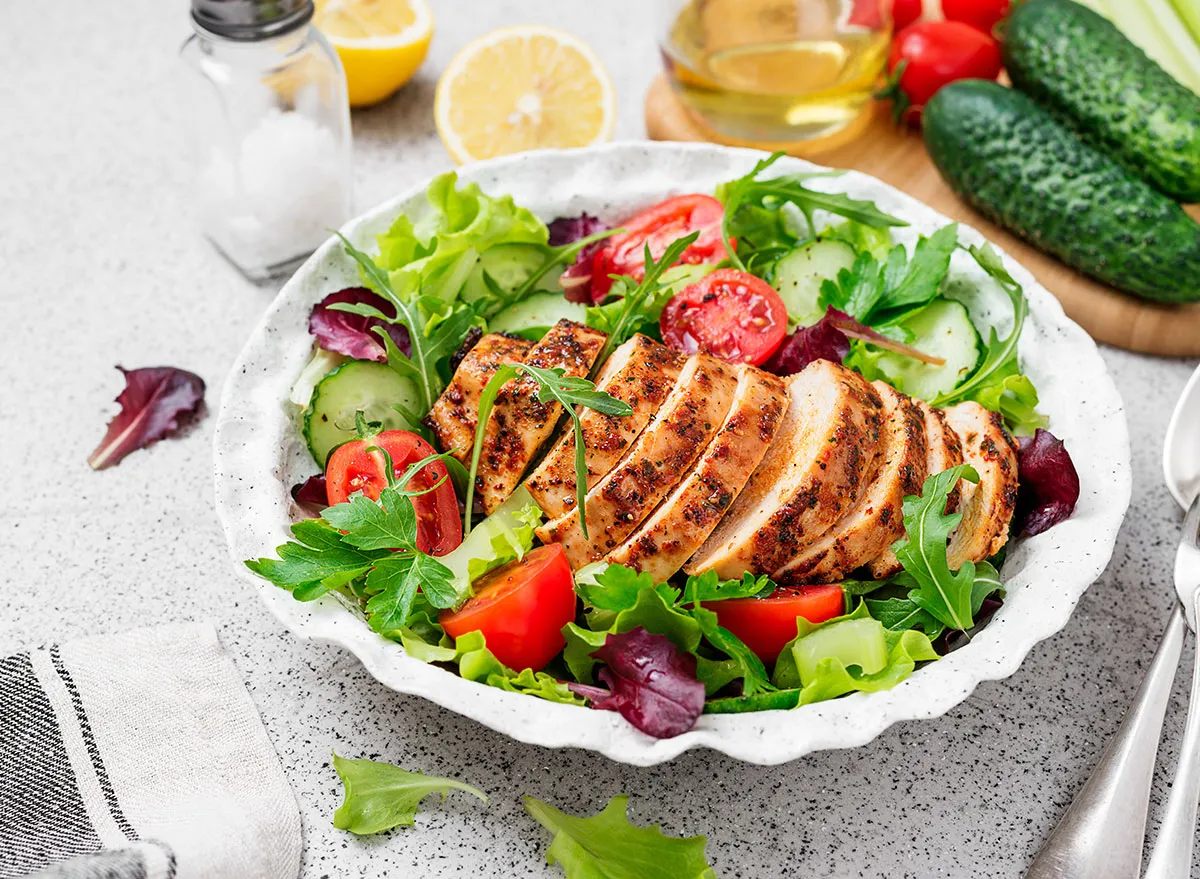
While there are definitely some positive attributes of grilled chicken, it is important to recognize the potential negative side effects as well.
Even though grilling your chicken may create a delicious flavor, it is best to utilize the tips for grilling that lessen the production of cancer-causing compounds. One more tip for balancing out the questionable compounds is to enjoy your grilled chicken with foods that are high in antioxidants, like fruits and vegetables, that can counteract the negative actions of HCAs and PAHs.
Serving your grilled chicken over a large salad loaded with lettuce and veggies, or enjoy it with a nice mango salsa and avocado for an antioxidant boost to counterbalance the carcinogenic compounds.
Read this next:
